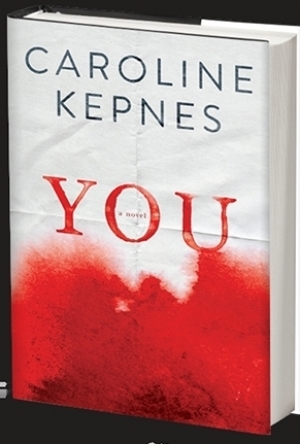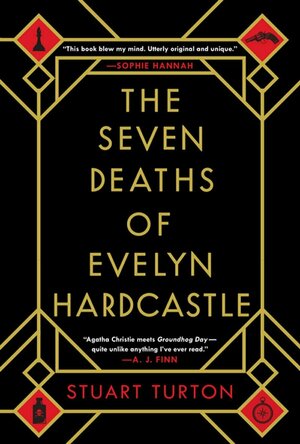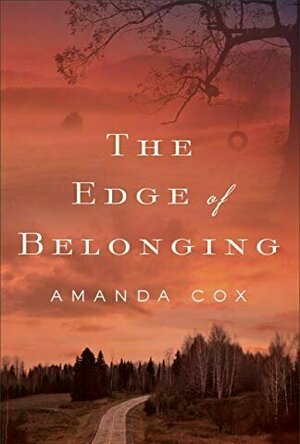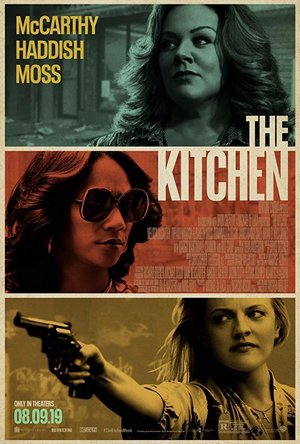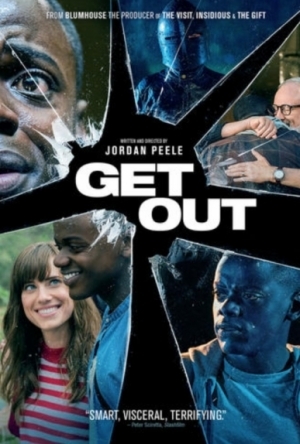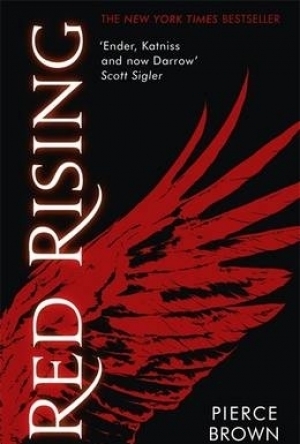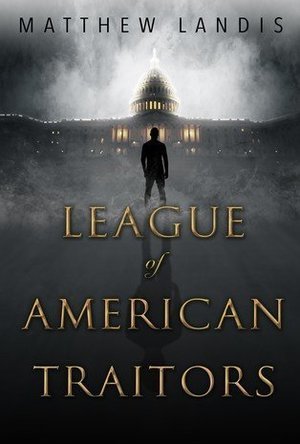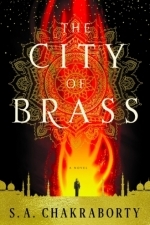Search
This book is a great debut novel for Kepnes, I haven’t read a stalker book before and was intrigued, however in parts it felt a bit repetitive, I didn’t like any of the characters in the book and I was starting to get a little bored with the story. The book is written in such a way that it feels like Joe is actually talking about you….ha ha ha see what I did there!*hangs head* So it can be a very creepy book depending on how you read it.
Joe is a total psychopath! I didn’t like him at all, he stalks Beck to no-end, he has Facebook, twitter, email accounts and watching her every move. He is obsessed with Beck and is determined to be her boyfriend and nothing will get in his way.The thing that shocked me the most was that he didn’t believe he had issues and that he was actually protecting her from her friends and other men that looked her way.
Beck is so annoying I really didn’t like her, she was an attention seeking little cow-bag, she had her own issues but would flaunt around with no bra on and get dressed in front of her window that had no blinds or curtains. Flirt with pretty much anyone. And I know this is probably awful to say but she brought a lot of this on herself. She is such a user as well, she was stringing Joe along at times just for odd job duties and I was starting to feel sorry for him, but I had to remind myself that he was the one in the wrong and I shouldnt be feeling like this.
I felt the story went on a little too long and I was getting bored in places, it was sometimes just him constantly checking email updates and tweets to see if beck was thinking about him. It was a bit predictable as well, even though I haven’t read a stalker book I figured it out pretty early on.
This is a book that will make you step back and have a reality check, there could be someone stalking you but you just don’t know it. With all the social media and how easy it is for people to access the information is very scary.
This is an adult book and does contain explicit language and sexual scenes so it will not be for everyone or a younger audience.
Overall I rated this 3.5 stars out of 5.
Joe is a total psychopath! I didn’t like him at all, he stalks Beck to no-end, he has Facebook, twitter, email accounts and watching her every move. He is obsessed with Beck and is determined to be her boyfriend and nothing will get in his way.The thing that shocked me the most was that he didn’t believe he had issues and that he was actually protecting her from her friends and other men that looked her way.
Beck is so annoying I really didn’t like her, she was an attention seeking little cow-bag, she had her own issues but would flaunt around with no bra on and get dressed in front of her window that had no blinds or curtains. Flirt with pretty much anyone. And I know this is probably awful to say but she brought a lot of this on herself. She is such a user as well, she was stringing Joe along at times just for odd job duties and I was starting to feel sorry for him, but I had to remind myself that he was the one in the wrong and I shouldnt be feeling like this.
I felt the story went on a little too long and I was getting bored in places, it was sometimes just him constantly checking email updates and tweets to see if beck was thinking about him. It was a bit predictable as well, even though I haven’t read a stalker book I figured it out pretty early on.
This is a book that will make you step back and have a reality check, there could be someone stalking you but you just don’t know it. With all the social media and how easy it is for people to access the information is very scary.
This is an adult book and does contain explicit language and sexual scenes so it will not be for everyone or a younger audience.
Overall I rated this 3.5 stars out of 5.
Ivana A. | Diary of Difference (1171 KP) rated The Seven Deaths Of Evelyn Hardcastle in Books
Sep 14, 2018
www.diaryofdiffference.com
Mind blowing and unputdownable, this is one of those mystery thrillers that will keep you up at night until you see how it ends!
How do you stop a murder that’s already happened?
The Hardcastle family is hosting a masquerade at their home, and their daughter Evelyn Hardcastle will die. She will die every day until Aiden Bishop is able identify her killer and break the cycle.
But every time the day begins again, Aiden wakes up each day in a different body as one of the guests.
Aiden’s only escape is to solve Evelyn Hardcastle’s murder and conquer the shadows of an enemy he struggles to even comprehend. But nothing and no one are quite what they seem.
Honestly, the first couple of pages, I didn’t know where this book was going and whether I am going to enjoy it at all. But as you go through the chapters and get familiar with the story, you realise how clever this book is, and you enjoy it like you have never enjoyed any other book before.
As a debut novel, Stuart Turton did an incredible job with this book. It starts slowly, and grows into a great story. We follow the main character Aiden through many bodies, day by day. The book is set into one place, one town, one house and its surroundings, and sometimes moves backwards and forwards in time.
If you love mysteries and closed escape room books, you will enjoy this book so much!
I have always admired Aiden. Even though all the bodies he was in tried to make him forget about who he really is, he would always fight so his character can flow on the surface! I loved the sacrifices he makes towards Anna, and their relationship.
The ending, the last 30 pages are so smart, amazing and perfectly wrapped up that I couldn’t believe I never noticed those clues.
I am giving it 4 stars, because, even though I really, really enjoyed it, it was extremely hard for me to follow the times and bodies, and I couldn’t get along with the stories and solve the mystery together with Aiden - I always felt like I was falling behind, that put me under stress.
If you haven’t had the chance to read it yet, please grab a copy as soon as you can. This is the escape room mystery that we have all been waiting for!
I want to thank NetGalley and Sourcebooks Landmark for providing me an advanced reader e-copy of this book, in exchange for my honest review.
Mind blowing and unputdownable, this is one of those mystery thrillers that will keep you up at night until you see how it ends!
How do you stop a murder that’s already happened?
The Hardcastle family is hosting a masquerade at their home, and their daughter Evelyn Hardcastle will die. She will die every day until Aiden Bishop is able identify her killer and break the cycle.
But every time the day begins again, Aiden wakes up each day in a different body as one of the guests.
Aiden’s only escape is to solve Evelyn Hardcastle’s murder and conquer the shadows of an enemy he struggles to even comprehend. But nothing and no one are quite what they seem.
Honestly, the first couple of pages, I didn’t know where this book was going and whether I am going to enjoy it at all. But as you go through the chapters and get familiar with the story, you realise how clever this book is, and you enjoy it like you have never enjoyed any other book before.
As a debut novel, Stuart Turton did an incredible job with this book. It starts slowly, and grows into a great story. We follow the main character Aiden through many bodies, day by day. The book is set into one place, one town, one house and its surroundings, and sometimes moves backwards and forwards in time.
If you love mysteries and closed escape room books, you will enjoy this book so much!
I have always admired Aiden. Even though all the bodies he was in tried to make him forget about who he really is, he would always fight so his character can flow on the surface! I loved the sacrifices he makes towards Anna, and their relationship.
The ending, the last 30 pages are so smart, amazing and perfectly wrapped up that I couldn’t believe I never noticed those clues.
I am giving it 4 stars, because, even though I really, really enjoyed it, it was extremely hard for me to follow the times and bodies, and I couldn’t get along with the stories and solve the mystery together with Aiden - I always felt like I was falling behind, that put me under stress.
If you haven’t had the chance to read it yet, please grab a copy as soon as you can. This is the escape room mystery that we have all been waiting for!
I want to thank NetGalley and Sourcebooks Landmark for providing me an advanced reader e-copy of this book, in exchange for my honest review.
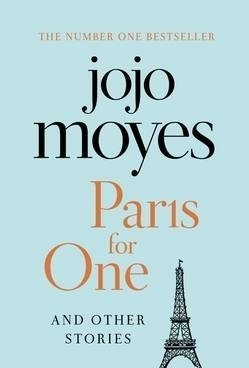
Paris for One and Other Stories
Book
A collection of 11 unmissable short stories from the Number One internationally bestselling author...
TravelersWife4Life (31 KP) rated The Edge of Belonging in Books
Feb 24, 2021
<a href="https://travelingwife4life.wordpress.com/2020/09/10/the-edge-of-belonging-lone-star-lit/">Travelers Wife 4 Life</a>
The Edge of Belonging by Amanda Cox was like a breath of fresh air amid uncertain times that cause you to reflect inward to who you really are. It is listed as a dual timeline, but I think it reads just like a complete story of getting to know a person from beginning to end, with some very thought-provoking moments.
<b>“What if this whole thing is really about finding your missing pieces?”</b>
This book and the characters in it made me go on a roller-coaster of thoughts, emotions, and feelings. I was hooked from the very beginning and read the book in one sitting because it was so good. I loved how Amanda Cox used the dialogue to make me feel as if I were in the story observing everything unfolding. She also used everyday life situations to convey hope for every situation tastefully touching on topics like depression, abandonment, abuse, PTSD, and death. It was masterfully done and quite hard to believe that this was her debut novel! (I cannot imagine what she will write after getting “practice” under her belt). The Edge of Belonging has some of the most poignant moments in it that I have ever read before in a book. Ivy Rose, Harvey James, Reese, and Pearl brought to light one of life’s most resounding questions… Who are you?
<b>“You are Braver than you know. And more Loved than you realize.”</b>
The plot is a dual timeline, I do not always like them because they can be kind of wonky, but wow, this one was done to perfection. It was really like looking through a window and watching the characters interact on the other side, definitely one of the best (if not the best) dual timelines I have ever had the pleasure of reading before. Interwoven with great landscape descriptions and interesting background on all the characters plus, the 20 years kept secrets… well this book is one I will be recommending for a long time to come.
While diving deep into the different characters' lives Amanda Cox managed to give many happy endings and bring you on a journey of discovery that I think everyone can relate to and enjoy. I highly recommend this book and give it 5 stars. Great job on your first book Amanda Cox, I cannot wait to see what you write next!
*I volunteered to read this book in return for my honest feedback. The thoughts and opinions expressed within are my own.
The Edge of Belonging by Amanda Cox was like a breath of fresh air amid uncertain times that cause you to reflect inward to who you really are. It is listed as a dual timeline, but I think it reads just like a complete story of getting to know a person from beginning to end, with some very thought-provoking moments.
<b>“What if this whole thing is really about finding your missing pieces?”</b>
This book and the characters in it made me go on a roller-coaster of thoughts, emotions, and feelings. I was hooked from the very beginning and read the book in one sitting because it was so good. I loved how Amanda Cox used the dialogue to make me feel as if I were in the story observing everything unfolding. She also used everyday life situations to convey hope for every situation tastefully touching on topics like depression, abandonment, abuse, PTSD, and death. It was masterfully done and quite hard to believe that this was her debut novel! (I cannot imagine what she will write after getting “practice” under her belt). The Edge of Belonging has some of the most poignant moments in it that I have ever read before in a book. Ivy Rose, Harvey James, Reese, and Pearl brought to light one of life’s most resounding questions… Who are you?
<b>“You are Braver than you know. And more Loved than you realize.”</b>
The plot is a dual timeline, I do not always like them because they can be kind of wonky, but wow, this one was done to perfection. It was really like looking through a window and watching the characters interact on the other side, definitely one of the best (if not the best) dual timelines I have ever had the pleasure of reading before. Interwoven with great landscape descriptions and interesting background on all the characters plus, the 20 years kept secrets… well this book is one I will be recommending for a long time to come.
While diving deep into the different characters' lives Amanda Cox managed to give many happy endings and bring you on a journey of discovery that I think everyone can relate to and enjoy. I highly recommend this book and give it 5 stars. Great job on your first book Amanda Cox, I cannot wait to see what you write next!
*I volunteered to read this book in return for my honest feedback. The thoughts and opinions expressed within are my own.
BankofMarquis (1832 KP) rated The Kitchen (2019) in Movies
May 17, 2020
Thinly written and directed
A rainy weekend is the perfect time to catch up with films that I meant to see in the Cineplex, but just didn't get around to it. So it was with some excitement that I flipped on the "Women Run The Mafia" movie THE KITCHEN from 2019.
I should have watched 21 BRIDGES.
Based on the DC/VERTIGO graphic novel, THE KITCHEN is set in the late 1970's in NYC and offers up the "what if" scenario of 3 women that take over the Mafia. A pretty interesting premise that could have been the GODFATHER or GOODFELLA's of the day (or...at least...another WIDOWS from 2018), but instead THE KITCHEN falls flat like the all female GHOSTBUSTERS from a few year's ago.
A star of that Ghostbuster's film, Melissa McCarthy leads the cast as Kathy Brennan, the wife of a mobster who was sent to jail and becomes the leader of the group. McCarthy has shown that she has the "chops" as an actress to tackle this role, but she never really gets there. There is no real depth or emotional stakes to her character throughout the course of the film. The screenplay (and McCarthy's performance) does pick up at the end, but by then, it is too little, too late. Also not fairing well is comedienne Tiffany Hadish as Ruby O'Carroll - an African-American female trying to dominate in a predominately white male world. Again...this character had potential, but the writing and, quite frankly, Hadish's performance just didn't quite succeed.
What did succeed is the always excellent Elisabeth Moss as the 3rd part of this triumvirate. Her "mousy, abused housewife turned stone cold killer" was interesting to watch - especially when paired with Domhnall Gleeson's assassin about 1/2 way through the movie. I wanted to watch a movie with these 2 criminals on the run.
I've mentioned the weak writing as part the issue here, so I'll have to mention first time Veteran Writer and first-time Director Andrea Berloff as the main culprit here. She wrote STRAIGHT OUTTA COMPTON so she has it in her, but here, the screenplay and characterizations are "thin". Perhaps, a good Director could have made something out of this, but she also made her Directing debut with this film, so it just didn't work well enough.
This isn't a bad film, it just isn't a very good - or very interesting - one.
Letter Grade B- (for the Moss/Gleeson portion of this film)
6 stars (out of 10) and you can take that to the Bank(ofMarquis)
I should have watched 21 BRIDGES.
Based on the DC/VERTIGO graphic novel, THE KITCHEN is set in the late 1970's in NYC and offers up the "what if" scenario of 3 women that take over the Mafia. A pretty interesting premise that could have been the GODFATHER or GOODFELLA's of the day (or...at least...another WIDOWS from 2018), but instead THE KITCHEN falls flat like the all female GHOSTBUSTERS from a few year's ago.
A star of that Ghostbuster's film, Melissa McCarthy leads the cast as Kathy Brennan, the wife of a mobster who was sent to jail and becomes the leader of the group. McCarthy has shown that she has the "chops" as an actress to tackle this role, but she never really gets there. There is no real depth or emotional stakes to her character throughout the course of the film. The screenplay (and McCarthy's performance) does pick up at the end, but by then, it is too little, too late. Also not fairing well is comedienne Tiffany Hadish as Ruby O'Carroll - an African-American female trying to dominate in a predominately white male world. Again...this character had potential, but the writing and, quite frankly, Hadish's performance just didn't quite succeed.
What did succeed is the always excellent Elisabeth Moss as the 3rd part of this triumvirate. Her "mousy, abused housewife turned stone cold killer" was interesting to watch - especially when paired with Domhnall Gleeson's assassin about 1/2 way through the movie. I wanted to watch a movie with these 2 criminals on the run.
I've mentioned the weak writing as part the issue here, so I'll have to mention first time Veteran Writer and first-time Director Andrea Berloff as the main culprit here. She wrote STRAIGHT OUTTA COMPTON so she has it in her, but here, the screenplay and characterizations are "thin". Perhaps, a good Director could have made something out of this, but she also made her Directing debut with this film, so it just didn't work well enough.
This isn't a bad film, it just isn't a very good - or very interesting - one.
Letter Grade B- (for the Moss/Gleeson portion of this film)
6 stars (out of 10) and you can take that to the Bank(ofMarquis)
Bob Mann (459 KP) rated Get Out (2017) in Movies
Sep 29, 2021
“It really doesn’t matter if you’re ‘Black or White”.
Due to a mixture of holiday, work commitments and sickness (I would not wish to inflict my bronchial cough on ANY cinema audience for a while) I haven’t been to the cinema in over a month… shocking. But it has given me a chance to catch up on some of the films in 2017 (and a few from last year) that I hadn’t got to see. So this will be the first of a series of such “DVD” reviews.
“Get Out” was written and directed by Jordan Peele and was his directorial debut. And a hot item on his resume it is too.
Daniel Kaluuya (“Sicario”) plays African-American Chris Washington who, nervously, takes a trip ‘upstate’ to meet the parents of his cute white girlfriend Rose (Allison Williams). The parents, Dean (Bradley Whitford, best known as Josh Lyman from “The West Wing”) and Missy (Catherine Keener, “ Captain Phillips”), are extremely welcoming.
But the weekend coincides with an “annual gathering” of family and friends, and events quickly take a left turn into “The Twilight Zone”, with anti-smoking hypnosis and a bizarre game of Bingo where the win is so substantial that playing becomes a ‘no brainer’. Can Chris ‘Get Out’, with his mind still intact, before it’s too late?
This is a really clever script by Peele. The film baits you into thinking this is some redneck-inter-racial-revenge flick, but actually the colour of the skin is almost irrelevant. (Or is it? This angle is left deliciously vague). Some of the filming is spectacularly creepy, with the hypnosis scene being reminiscent to me of the excellent “Under The Skin”. And never has a teaspoon in a cup of tea been a more devastating weapon.
I seemed to have talked at length this year in this blog on the subject of the “physics of horror”: the story elements hanging together in a satisfying – albeit sometimes in an unbelievable – way. “Get Out” delivers this to perfection, keeping its powder dry until the closing moments of the film before delivering a series of satisfying “Ah!” relevatory moments.
While the ‘physics’ of the film is good the ‘biology’ is bonkers, featuring a plot point from the terrible first episode of the 3rd season of the original “Star Trek” (if you can be bothered to look that up!). But I’ll forgive this, parking my incredulity, to salute what I think is one of the year’s most novel and impressive low-budget indie horror films.
“Get Out” was written and directed by Jordan Peele and was his directorial debut. And a hot item on his resume it is too.
Daniel Kaluuya (“Sicario”) plays African-American Chris Washington who, nervously, takes a trip ‘upstate’ to meet the parents of his cute white girlfriend Rose (Allison Williams). The parents, Dean (Bradley Whitford, best known as Josh Lyman from “The West Wing”) and Missy (Catherine Keener, “ Captain Phillips”), are extremely welcoming.
But the weekend coincides with an “annual gathering” of family and friends, and events quickly take a left turn into “The Twilight Zone”, with anti-smoking hypnosis and a bizarre game of Bingo where the win is so substantial that playing becomes a ‘no brainer’. Can Chris ‘Get Out’, with his mind still intact, before it’s too late?
This is a really clever script by Peele. The film baits you into thinking this is some redneck-inter-racial-revenge flick, but actually the colour of the skin is almost irrelevant. (Or is it? This angle is left deliciously vague). Some of the filming is spectacularly creepy, with the hypnosis scene being reminiscent to me of the excellent “Under The Skin”. And never has a teaspoon in a cup of tea been a more devastating weapon.
I seemed to have talked at length this year in this blog on the subject of the “physics of horror”: the story elements hanging together in a satisfying – albeit sometimes in an unbelievable – way. “Get Out” delivers this to perfection, keeping its powder dry until the closing moments of the film before delivering a series of satisfying “Ah!” relevatory moments.
While the ‘physics’ of the film is good the ‘biology’ is bonkers, featuring a plot point from the terrible first episode of the 3rd season of the original “Star Trek” (if you can be bothered to look that up!). But I’ll forgive this, parking my incredulity, to salute what I think is one of the year’s most novel and impressive low-budget indie horror films.
Hazel (1853 KP) rated Red Rising in Books
May 30, 2017
Mildly boring
This eBook was provided by the publisher via NetGalley in exchange for an honest review
Red Rising by debut author Pierce Brown is a very difficult book to review. It is clear that Brown is an excellent writer with amazing ideas, but at the same time it does not feel possible to rate the book any higher that two or three stars. This first book of three is somewhat alike The Hunger Games Trilogy by Suzanne Collins and has some very exciting themes. However at other times it provoked a range of emotions from disgust to almost verging on boredom.
Set thousands of years in the future, the world has become colour coded. Gold are the elite, the ruling colour, and at the bottom of the pile are the Reds. Darrow is a Red and lives below the surface of the planet Mars in the mines with the responsibility of helping to make the planet’s surface habitable for humans in the future. He soon discovers that the ruling societies have been lying to him all his life, and to the many generations before him. But there is an uprising brewing and Darrow has been chosen to play a vital role in it, even though that means pretending to be the enemy.
Although it was difficult to get into the novel it appeared to be clear what the plot would be about. Wrong! Once Darrow has been trained to behave like a Gold the storyline changes completely. It is almost as though it is a different book altogether. Red Rising suddenly becomes Hunger Games-esque and the situations with the Reds, while being referred to once or twice, was all but forgotten. Presumably those original themes will continue within the final books of the trilogy.
Living under the surface of Mars with no sunlight speeds up the aging process of the inhabitants. People in the thirties are considered old; therefore even though Darrow is a teenager in Earth years, he is portrayed as a man – an image that is difficult to shake off throughout the entire book. Once Darrow is living with the Golds and, supposedly, resembling his true age, it is still easy to forget that he is young. This may change the way the reader pictures the scenes compared with how the author intended them to be imagined. The characters are still only children but may be mistaken for adults due Darrow’s opening scenes.
It cannot be denied that Brown is a very knowledgeable writer. As well as writing in an exceptionally well-structured way, he incorporates a vast amount of high culture into his story. A lot of the novel is influenced by Greek and Roman mythology and he also quotes famous philosophers such as Cicero and Plato. So despite its science fiction genre it also has a slight educational nature.
Something interesting about Red Rising was the character development of Darrow. At the beginning he was rather naïve, believing everything he was told, following orders etc. But soon he becomes more confident, clever, Gold-like. However he then becomes like a wild beast, killing to survive, to win. Thankfully his cleverness takes control and he realises that he needs to become a leader and not a tyrant. Towards the end he even becomes messiah-like. As Darrow progresses through these changes he becomes a more likable character.
I am not sure whether I want to read the next installment of Red Rising. For the beginning storyline to continue and become the main focus, the book would need to be completely different. This could be a good thing because, as mentioned, there were times when it was a little boring, however there’s the risk that it will not feel like a follow on from the first book. I do not want to put anyone off from reading it, but I will honestly say that it was not really what I was expecting.
Red Rising by debut author Pierce Brown is a very difficult book to review. It is clear that Brown is an excellent writer with amazing ideas, but at the same time it does not feel possible to rate the book any higher that two or three stars. This first book of three is somewhat alike The Hunger Games Trilogy by Suzanne Collins and has some very exciting themes. However at other times it provoked a range of emotions from disgust to almost verging on boredom.
Set thousands of years in the future, the world has become colour coded. Gold are the elite, the ruling colour, and at the bottom of the pile are the Reds. Darrow is a Red and lives below the surface of the planet Mars in the mines with the responsibility of helping to make the planet’s surface habitable for humans in the future. He soon discovers that the ruling societies have been lying to him all his life, and to the many generations before him. But there is an uprising brewing and Darrow has been chosen to play a vital role in it, even though that means pretending to be the enemy.
Although it was difficult to get into the novel it appeared to be clear what the plot would be about. Wrong! Once Darrow has been trained to behave like a Gold the storyline changes completely. It is almost as though it is a different book altogether. Red Rising suddenly becomes Hunger Games-esque and the situations with the Reds, while being referred to once or twice, was all but forgotten. Presumably those original themes will continue within the final books of the trilogy.
Living under the surface of Mars with no sunlight speeds up the aging process of the inhabitants. People in the thirties are considered old; therefore even though Darrow is a teenager in Earth years, he is portrayed as a man – an image that is difficult to shake off throughout the entire book. Once Darrow is living with the Golds and, supposedly, resembling his true age, it is still easy to forget that he is young. This may change the way the reader pictures the scenes compared with how the author intended them to be imagined. The characters are still only children but may be mistaken for adults due Darrow’s opening scenes.
It cannot be denied that Brown is a very knowledgeable writer. As well as writing in an exceptionally well-structured way, he incorporates a vast amount of high culture into his story. A lot of the novel is influenced by Greek and Roman mythology and he also quotes famous philosophers such as Cicero and Plato. So despite its science fiction genre it also has a slight educational nature.
Something interesting about Red Rising was the character development of Darrow. At the beginning he was rather naïve, believing everything he was told, following orders etc. But soon he becomes more confident, clever, Gold-like. However he then becomes like a wild beast, killing to survive, to win. Thankfully his cleverness takes control and he realises that he needs to become a leader and not a tyrant. Towards the end he even becomes messiah-like. As Darrow progresses through these changes he becomes a more likable character.
I am not sure whether I want to read the next installment of Red Rising. For the beginning storyline to continue and become the main focus, the book would need to be completely different. This could be a good thing because, as mentioned, there were times when it was a little boring, however there’s the risk that it will not feel like a follow on from the first book. I do not want to put anyone off from reading it, but I will honestly say that it was not really what I was expecting.
Kyera (8 KP) rated League of American Traitors in Books
Feb 1, 2018
The premise of this book is much more intriguing than its actual execution. Jasper is the descendant of Benedict Arnold, the most notorious traitor in American history. After the death of both of his parents, Jasper learns that there is more to his world than he ever knew. He learns that for hundreds of years, the descendants of both the heroes and villains from American history have been on opposing sides. The heroes' descendants, who call themselves the Sons of Liberty, challenge the descendants of the villains to a duel when they come of age. Unbeknownst to Jasper, his father was searching for a way out of the duel for his son. His untimely death leads Jasper down a path that forces him to question everything he's ever known.
I would like to mention that I was provided with an uncorrected e-galley to review this book. The fact that I was provided with the galley didn't affect my review, but the quality of the galley certainly influenced my enjoyment of the book. There were a number of grammatical or spelling errors throughout and that's something that pulls me out of the story. That is just a personal problem with the book and one I hope will not be present in the book when it is released on August 8th.
As a huge fan of history, I was incredibly intrigued by the premise of this book. It was sold as a mash-up of Hamilton and National Treasure - and who doesn't love those two things? It wasn't quite as fast-paced and thrilling as the premise would lead you to believe, but it is enjoyable.
I wish there was more character development in the novels because at times it was difficult to understand each character's motivations. They might have a complete change in perspective or opinion and it wasn't adequately explained leaving the reader questioning what was happening. There were so many characters in the book, many of which were quite prevalent that I understand that it probably wasn't possible to develop them all. That's just not feasible when writing a book, but I do think that the story would have benefitted greatly had there been just a bit more development.
The world that the author built was intriguing as he was able to blend authentic U.S. history in with his more dramatic narrative. Of course, settling one's qualms via a duel is a bit dramatic but he managed to raise the stakes. His characters' lives are on the line if they are not successful and yet the entire organization's framework could be altered if they are.
The plot of the book follows the course of American history with traitors and spies, secrets and betrayals, love and heartbreak. There are pacing issues with the book as it has moments that drag and others that seem to jump forward without enough context. There are some scenes that seem unnecessary to the plot and could be shorted to give more opportunities for character development. Overall, I feel that it is a good debut novel that could have been improved by culling extraneous scenes and delving more deeply into the world and characters.
Although it suffers from pacing issues and underdeveloped characters - it is still an entertaining read. I would recommend it to fans of history and action/adventure books, as it melds elements of both into a novel about the heroes and traitors of American history (and their descendants). There is a lot of violence in the book, but as it is not graphic I would not hesitate to allow a YA/teen reader to pick up this book. If you're a fan of historical fiction or action/adventures then you should definitely check out this book!
I would like to mention that I was provided with an uncorrected e-galley to review this book. The fact that I was provided with the galley didn't affect my review, but the quality of the galley certainly influenced my enjoyment of the book. There were a number of grammatical or spelling errors throughout and that's something that pulls me out of the story. That is just a personal problem with the book and one I hope will not be present in the book when it is released on August 8th.
As a huge fan of history, I was incredibly intrigued by the premise of this book. It was sold as a mash-up of Hamilton and National Treasure - and who doesn't love those two things? It wasn't quite as fast-paced and thrilling as the premise would lead you to believe, but it is enjoyable.
I wish there was more character development in the novels because at times it was difficult to understand each character's motivations. They might have a complete change in perspective or opinion and it wasn't adequately explained leaving the reader questioning what was happening. There were so many characters in the book, many of which were quite prevalent that I understand that it probably wasn't possible to develop them all. That's just not feasible when writing a book, but I do think that the story would have benefitted greatly had there been just a bit more development.
The world that the author built was intriguing as he was able to blend authentic U.S. history in with his more dramatic narrative. Of course, settling one's qualms via a duel is a bit dramatic but he managed to raise the stakes. His characters' lives are on the line if they are not successful and yet the entire organization's framework could be altered if they are.
The plot of the book follows the course of American history with traitors and spies, secrets and betrayals, love and heartbreak. There are pacing issues with the book as it has moments that drag and others that seem to jump forward without enough context. There are some scenes that seem unnecessary to the plot and could be shorted to give more opportunities for character development. Overall, I feel that it is a good debut novel that could have been improved by culling extraneous scenes and delving more deeply into the world and characters.
Although it suffers from pacing issues and underdeveloped characters - it is still an entertaining read. I would recommend it to fans of history and action/adventure books, as it melds elements of both into a novel about the heroes and traitors of American history (and their descendants). There is a lot of violence in the book, but as it is not graphic I would not hesitate to allow a YA/teen reader to pick up this book. If you're a fan of historical fiction or action/adventures then you should definitely check out this book!
Goddess in the Stacks (553 KP) rated The City of Brass: Daevabad Trilogy in Books
Mar 25, 2018
Fantastic world-building (1 more)
Character Development
So much to say about this outstanding debut novel! First I'd like to address the issues around the author, then I'll delve into the book itself. (It's fantastic, though!)
So the book has been touted as an "own voices" novel, seemingly much to the author's chagrin. She is Muslim, but she's a white convert (Chakraborty is her married name). She has striven to correct the misconception about her ethnicity when she finds it, tweeting about it and talking about it in interviews. (This interview is a good example.) Because the book is pure fantasy, in a fantasy realm after the first few chapters, I'm not too worried about it not actually being written by a middle-eastern author. She does note in the interview I linked that she's not qualified to write some stories because of her ethnicity, and I appreciate that recognition of privilege. As far as I can tell, (as a white person myself) she did justice to the bits of mythology that she included. (Given the reception by people who were so excited about it being an Own Voices book, I think I'm probably right.) Her twitter (@SChakrabs) is FULL of links to minority authors and retweets about their books. I am very impressed by the level of her advocacy for minority authors.
So that aside, I LOVED THIS BOOK. I almost always enjoy fantasy inspired by non-western mythology: Children of Blood and Bone was fantastic, and though Forest of a Thousand Lanterns had a western fairytale at its heart, being reimagined through an Asian lense was really neat to read. The Bear and The Nightingale and The Girl in the Tower were Russian inspired, as were The Crown's Game/The Crown's Fate. I really do try to pick up non-western inspired fantasy when I can. City of Brass scratched that itch perfectly.
City of Brass opens in Cairo, where our heroine, Nahri, is a con-woman with small healing magics. When a ritual goes awry, she's thrust into the world of the djinn. It's when Nahri and her accidental bodyguard, Dara, arrive at the Djinns' city of Daevabad that the story really gets started.
I'm still a little confused about the difference between djinn and Daeva; Daeva seem to be one of the tribes but also the name for the entire race, and some of them get offended at being called djinn but some of them don't? I'm not really sure about that distinction. There is a clear line between djinn and Ifrit, though - Ifrit are immensely powerful, immortal beings who refused to subject themselves to punishment many centuries ago. I'm not sure I actually see a downside to being Ifrit, other than the djinn all think they're evil. The Ifrit, however, are out to get Nahri, and Dara's not having any of THAT.
I love Dara - he's a fascinating character, with a violent, mysterious backstory. I'm very eager to read more about him and figure out exactly what's up with his background. Nahri is also awesome - a little arrogant, but by the end of the book she's starting to learn she might need help from those around her. Unfortunately, also by the end of the book she doesn't know who to trust. The naive djinn prince, Ali, is the third main character of the book, and while I can see him having an interesting story, his personality is still a little flat. Hopefully the second book will see advancement in all three of these characters' personalities.
And I can't WAIT for the second book! City of Brass didn't exactly end on a cliffhanger, but it did leave many questions unanswered and our main characters' fates uncertain. Unfortunately, I can't find any information on the sequel, just that it's being edited. No release date or title yet.
Read this book. It's fantastic.
You can find all my reviews at http://goddessinthestacks.wordpress.com
So the book has been touted as an "own voices" novel, seemingly much to the author's chagrin. She is Muslim, but she's a white convert (Chakraborty is her married name). She has striven to correct the misconception about her ethnicity when she finds it, tweeting about it and talking about it in interviews. (This interview is a good example.) Because the book is pure fantasy, in a fantasy realm after the first few chapters, I'm not too worried about it not actually being written by a middle-eastern author. She does note in the interview I linked that she's not qualified to write some stories because of her ethnicity, and I appreciate that recognition of privilege. As far as I can tell, (as a white person myself) she did justice to the bits of mythology that she included. (Given the reception by people who were so excited about it being an Own Voices book, I think I'm probably right.) Her twitter (@SChakrabs) is FULL of links to minority authors and retweets about their books. I am very impressed by the level of her advocacy for minority authors.
So that aside, I LOVED THIS BOOK. I almost always enjoy fantasy inspired by non-western mythology: Children of Blood and Bone was fantastic, and though Forest of a Thousand Lanterns had a western fairytale at its heart, being reimagined through an Asian lense was really neat to read. The Bear and The Nightingale and The Girl in the Tower were Russian inspired, as were The Crown's Game/The Crown's Fate. I really do try to pick up non-western inspired fantasy when I can. City of Brass scratched that itch perfectly.
City of Brass opens in Cairo, where our heroine, Nahri, is a con-woman with small healing magics. When a ritual goes awry, she's thrust into the world of the djinn. It's when Nahri and her accidental bodyguard, Dara, arrive at the Djinns' city of Daevabad that the story really gets started.
I'm still a little confused about the difference between djinn and Daeva; Daeva seem to be one of the tribes but also the name for the entire race, and some of them get offended at being called djinn but some of them don't? I'm not really sure about that distinction. There is a clear line between djinn and Ifrit, though - Ifrit are immensely powerful, immortal beings who refused to subject themselves to punishment many centuries ago. I'm not sure I actually see a downside to being Ifrit, other than the djinn all think they're evil. The Ifrit, however, are out to get Nahri, and Dara's not having any of THAT.
I love Dara - he's a fascinating character, with a violent, mysterious backstory. I'm very eager to read more about him and figure out exactly what's up with his background. Nahri is also awesome - a little arrogant, but by the end of the book she's starting to learn she might need help from those around her. Unfortunately, also by the end of the book she doesn't know who to trust. The naive djinn prince, Ali, is the third main character of the book, and while I can see him having an interesting story, his personality is still a little flat. Hopefully the second book will see advancement in all three of these characters' personalities.
And I can't WAIT for the second book! City of Brass didn't exactly end on a cliffhanger, but it did leave many questions unanswered and our main characters' fates uncertain. Unfortunately, I can't find any information on the sequel, just that it's being edited. No release date or title yet.
Read this book. It's fantastic.
You can find all my reviews at http://goddessinthestacks.wordpress.com
Louise (64 KP) rated When Dimple Met Rishi in Books
Jul 2, 2018
*I received a copy of this book from Netgalley and the publisher in exchange for an honest review*
I do love myself a good YA contemporary, and this delivered. ‘When Dimple met Rishi’ has everything that you could want in a coming of age novel, it was diverse, there was romance, families, friendships and the difficulties of growing up.
I couldn’t believe this was Sandhya Menon’s debut novel as the characters felt so real and the writing was amazing.
Dimple Shah is 17 and looking forward to the prospect of college, she has enrolled for a course for computer programming and has so many ideas buzzing around her brain. Her mother has always wanted Dimple to get married and find the IIH (Ideal Indian Husband) than become a student. Dimple also wants to attend a summer camp where she can show off her programming skills and start making a name for herself, the course costs $1000 and is shocked when her parents allow her to go but what she doesn’t know is that they have other plans.
Rishi Patel wants to follow in his parents footsteps with his own arranged marriage. He too is to go to the same Summer camp where he is to meet his future bride, however when they come face to face he realises that Dimple’s parents have failed to mention the arrangement to her. Her future of computer programming seems to be slipping from her grasp at lightening speed.
This book was great it is told in dual perspective and the chapters are just the right length. The writing is easy to read and with the dual narrative you don’t get bored.
Going in to this book I had very little knowledge of Indian culture and arranged marriages as it’s not something that I have read about. This is a positive light on arranged marriages rather than the awful experiences that you hear about. I felt the impact that their culture had on these individuals to carry on with the traditions as expected of them.
I loved the characters Dimple and Rishi,they were different yet so right for each other. Dimple was head strong, determined to make a future out of something she loved and living her life as she wanted rather than expectations. She found her mother over-bearing at times as she was forceful in her suggestions. I loved that Dimple was a nerd, nowadays it’s cool to be one and be different from others and I see that now that I am older but not necessarily when I was a teenager.
Rishi was adorable, he was funny,nerdy and also really talented. He wanted to please his parents by doing what they thought best in his school work but when it came to LOVE, Rishi wanted to follow his culture, have an arranged marriage and children. This was firmly his decision and he such passion when he talked about his culture and the times he visited India.
There were a couple of reasons that I didn’t rate this book a 5 stars and they were; I didn’t really like Ashish’s storyline. The plot was a little predictable, it had great feels in the middle but then it fizzled out as I was getting frustrated with Dimples stubbornness.
This book was great it’s a perfect summer/beach read, I loved the characters, the feels that I got from Menon’s writing and the fulfillment of learning something new. I hope this isn’t the last we see from her as she can only continue to get better.
I rated this 4 out of 5 stars
I do love myself a good YA contemporary, and this delivered. ‘When Dimple met Rishi’ has everything that you could want in a coming of age novel, it was diverse, there was romance, families, friendships and the difficulties of growing up.
I couldn’t believe this was Sandhya Menon’s debut novel as the characters felt so real and the writing was amazing.
Dimple Shah is 17 and looking forward to the prospect of college, she has enrolled for a course for computer programming and has so many ideas buzzing around her brain. Her mother has always wanted Dimple to get married and find the IIH (Ideal Indian Husband) than become a student. Dimple also wants to attend a summer camp where she can show off her programming skills and start making a name for herself, the course costs $1000 and is shocked when her parents allow her to go but what she doesn’t know is that they have other plans.
Rishi Patel wants to follow in his parents footsteps with his own arranged marriage. He too is to go to the same Summer camp where he is to meet his future bride, however when they come face to face he realises that Dimple’s parents have failed to mention the arrangement to her. Her future of computer programming seems to be slipping from her grasp at lightening speed.
This book was great it is told in dual perspective and the chapters are just the right length. The writing is easy to read and with the dual narrative you don’t get bored.
Going in to this book I had very little knowledge of Indian culture and arranged marriages as it’s not something that I have read about. This is a positive light on arranged marriages rather than the awful experiences that you hear about. I felt the impact that their culture had on these individuals to carry on with the traditions as expected of them.
I loved the characters Dimple and Rishi,they were different yet so right for each other. Dimple was head strong, determined to make a future out of something she loved and living her life as she wanted rather than expectations. She found her mother over-bearing at times as she was forceful in her suggestions. I loved that Dimple was a nerd, nowadays it’s cool to be one and be different from others and I see that now that I am older but not necessarily when I was a teenager.
Rishi was adorable, he was funny,nerdy and also really talented. He wanted to please his parents by doing what they thought best in his school work but when it came to LOVE, Rishi wanted to follow his culture, have an arranged marriage and children. This was firmly his decision and he such passion when he talked about his culture and the times he visited India.
There were a couple of reasons that I didn’t rate this book a 5 stars and they were; I didn’t really like Ashish’s storyline. The plot was a little predictable, it had great feels in the middle but then it fizzled out as I was getting frustrated with Dimples stubbornness.
This book was great it’s a perfect summer/beach read, I loved the characters, the feels that I got from Menon’s writing and the fulfillment of learning something new. I hope this isn’t the last we see from her as she can only continue to get better.
I rated this 4 out of 5 stars
